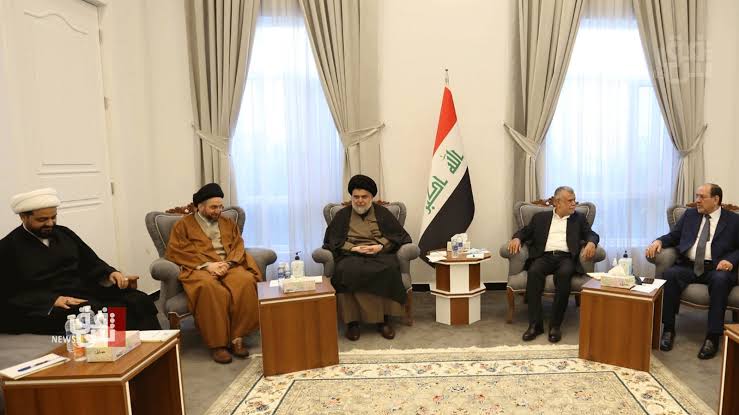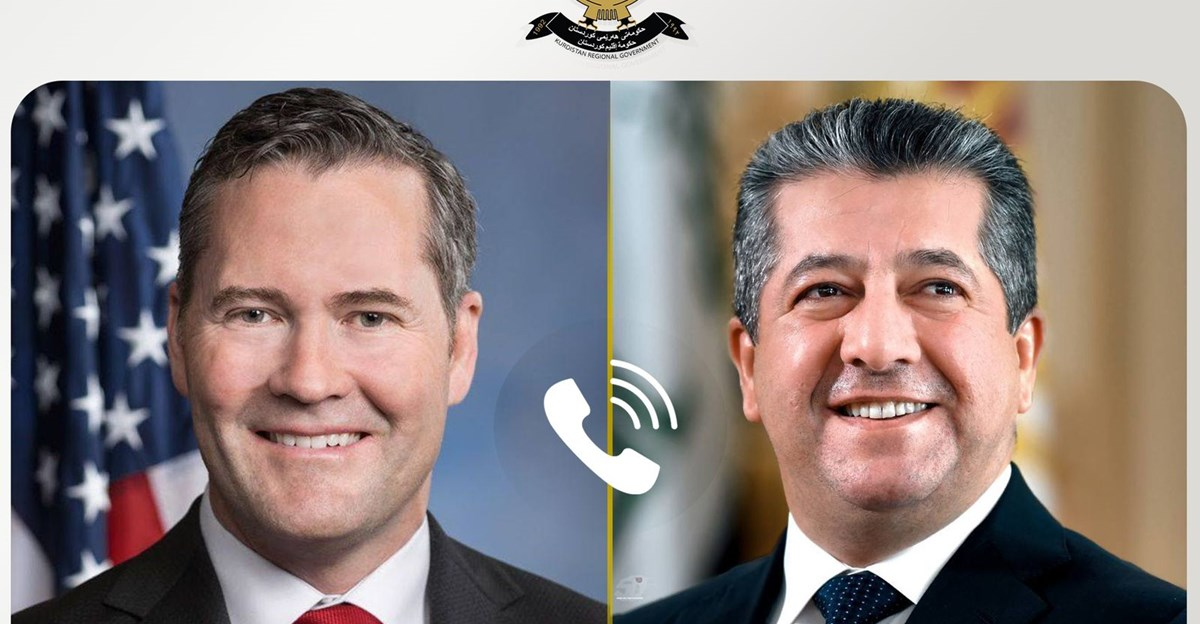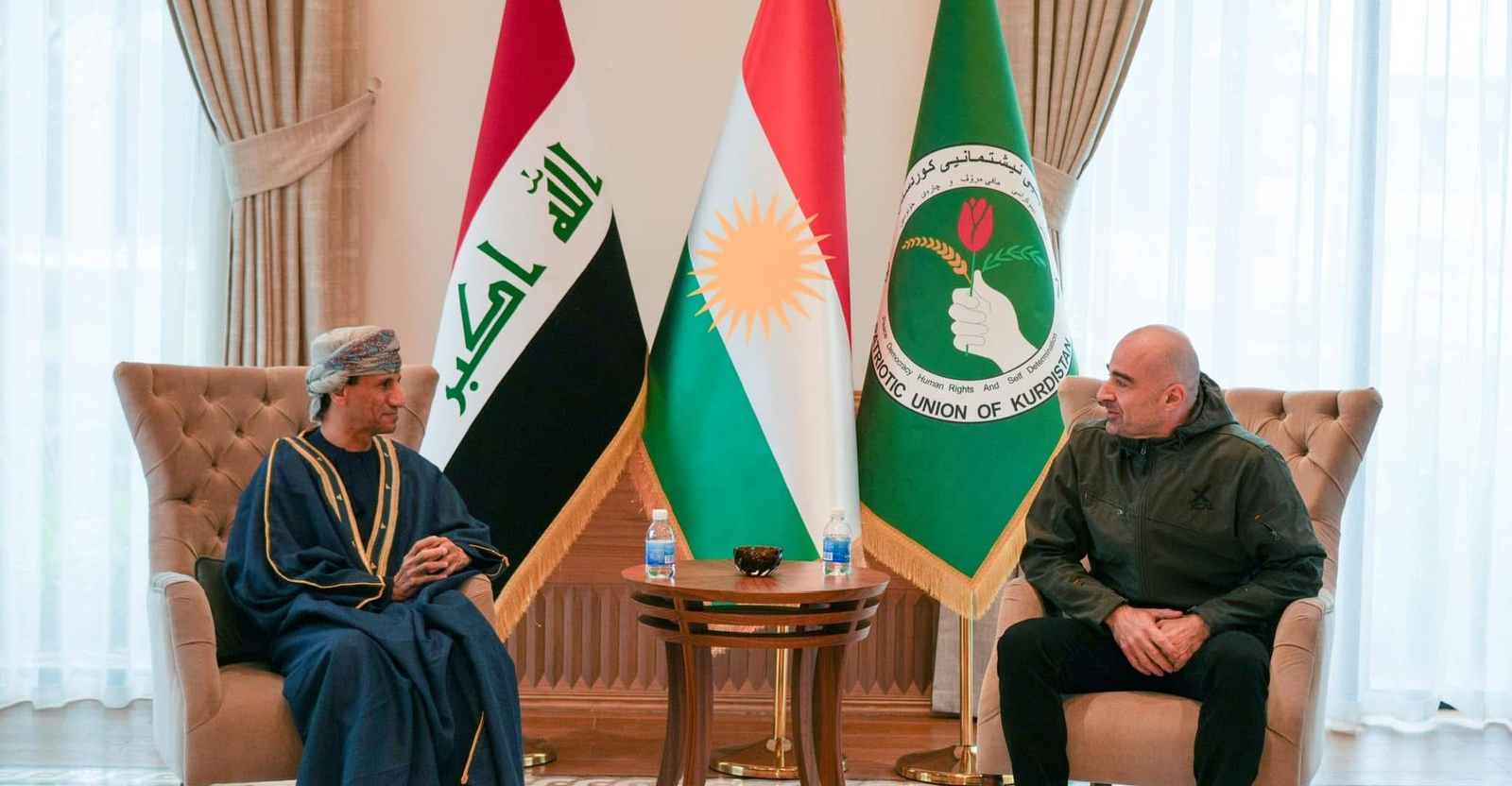Sadrist Movement at crossroads: Political reintegration amid internal Framework struggle

Shafaq News / In a pivotal moment of political recalibration, the Sadrist Movement finds itself at the center of deliberations within the Coordination Framework (CF), as leaders weigh the prospect of urging Muqtada al-Sadr's return to the political fold ahead of parliamentary elections.
Against a backdrop of internal rifts among Coordination Framework forces, the Sadrist withdrawal from political engagement in 2022 marked a significant juncture.
Now, as whispers of a potential resurgence echo through the political landscape, Muqtada al-Sadr's recent affirmations resonate with steadfastness, while his supporters eagerly anticipate their leader's next directive.
Recent discussions have intensified within the Framework leaders regarding urging al-Sadr to participate in the upcoming parliamentary elections.
Observers note that internal divisions within the Framework push for the Sadrist movement's return to political engagement.
Notably, the Sadrist Movement withdrew from the political process on August 29, 2022, after al-Sadr decided to withdraw his bloc's deputies from parliament, followed by his announcement of political retirement.
In his latest statements, al-Sadr affirmed the "resilience" of his popular base since their withdrawal, holding the largest number of seats among political forces,
"Peace be upon the popular bases that have patiently and faithfully persevered after our withdrawal from the parliament so as not to back the corrupt." He said.
He added, "Despite the enemy and its bet on their dispersion, they have endured and remained faithful," without disclosing any direction for his Movement in the upcoming phase, whether it will return to political work.
Following al-Sadr's statement, hundreds of his supporters flocked to the streets in several governorates, chanting slogans and expressing their joy at his acknowledgment, affirming their readiness for whatever he directed them.
Al-Sadr's statements coincide with circulated reports about the possibility of the Movement's return to political work and participation in the upcoming parliamentary elections.
Premature discussions
In the early discussions surrounding the potential resurgence of the Sadrist Movement into the political arena, independent deputy Hussein Arab deemed it "premature to speculate."
Arab suggested that "any return should commence with participation in the upcoming parliamentary elections, scheduled for over a year from now. Efforts to persuade the Sadrist Movement to re-engage politically through electoral participation are reportedly underway."
Arab emphasized the significant impact of the Movement's withdrawal, noting that its absence has "left a notable void in the political landscape."
He urged Muqtada al-Sadr to "reconsider his decision," highlighting the "crucial need for the Movement's presence in both government and parliament for political equilibrium."
Echoing Arab's sentiment, State of Law Coalition's member MP Aref Al-Hamaimi stressed "the importance of the Sadrist Movement's involvement in political processes," pointing out the "strength it brings to governance when all political factions participate."
However, Al-Hamaimi cautioned that there is no confirmed information regarding the Sadrist Movement's potential return to political engagement.
Recent reports circulating in various media outlets have suggested behind-the-scenes maneuvers by CF leaders to encourage al-Sadr's participation in the forthcoming parliamentary elections. This speculation coincides with statements from former Prime Minister Nouri al-Maliki regarding al-Sadr's alleged desire for early elections. Nevertheless, the Sadrist Movement has not confirmed these reports.
In response to these developments, writer and journalist Mujashaa' Al-Tamimi believed that al-Maliki's statements reflected his personal perspectives rather than concrete realities regarding the Sadrist Movement's stance.
Al-Tamimi noted al-Sadr's unequivocal stance against participating in political processes tainted by corruption, citing his explicit declarations in 2022 regarding withdrawal from political engagement due to this issue.
He emphasized that al-Sadr's conditions for participation remain unchanged, asserting that "the Movement will not engage in any elections until corrupt elements are removed from the political landscape."
Coordination Framework's internal conflict
The internal struggle within the Framework landscape has emerged as a focal point of analysis and discussion among political observers.
This intra-framework conflict, epitomized by recent statements from key figures like Nouri al-Maliki, highlights deeper tensions within these entities. Such remarks indicate a more extensive power play within the Framework, with various factions vying for influence and control.
Political analyst Issam Hussein elaborated on this dynamic, suggesting that "the discourse emanating from Framework leaders reflects underlying power struggles and strategic maneuvering." This internal friction is not merely rhetorical but indicative of divergent agendas and ambitions within the Framework.
The potential implications for broader political processes, including electoral participation, further emphasize the situation's complexity. While electoral engagement is a fundamental right for all Iraqi citizens, the decision rests heavily on the Sadrist Movement's leadership.
However, any decision regarding electoral participation demands a coherent and well-articulated political vision, a factor that cannot be overlooked amidst the ongoing internal dynamics.
Moreover, the discourse surrounding the Sadrist Movement's potential involvement in elections is influenced by broader concerns regarding governance capacity. As highlighted by Hussein, "There are apprehensions regarding the effectiveness of the current government structure, raising questions about the stability and efficacy of future governance arrangements. In this context, the desire for the Sadrist Movement to engage politically is driven, in part, by a perceived need to bolster and safeguard the integrity of governmental institutions."
In summary, the notion of an internal framework struggle encapsulates a multifaceted and nuanced dynamic within Iraqi politics that intersects with broader questions of governance, electoral participation, and power distribution.



